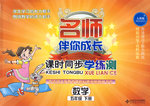题目内容
A report from the United Nations said that around 60 million people across the world, with 80% of them in Asia, are drinking polluted water. Some 4,500 children die every day because of polluted water.
A report showed that environmental problems kill 3 million children under five years old each year, making them one of the key contributors(捐助者) in more than 10 million child deaths worldwise each year.
Dangerous factors include indoor and outdoor air pollution, water pollution, lack of good hygiene facilities and poor ecological (生态学) systems(系统) , it said.
Another study showed that parents and experts from seven countries including the United States, India and Nigeria, regarded pollution as the biggest threat (威胁)to children’s natural living environment.
Many parents say that children today are being brought up with fewer blue skies than when they were little kids.
Mrs. Green tries to teach her daughter Susan by setting a personal example. She picks out recyclable waste and uses the water from the washing machine to wash the toilet.
Chinese children mostly learn about environmental protection in school.
Some non-governmental organizations and child centers also teach kids to protect the environment. More parents have become aware of it. Family is now playing a more important role,” says a Chinese official.
Vera Lehmann, an expert from Germany says many Chinese are increasingly aware of polluted. “I was surprised to find how much schools in China are willing to contribute to educating the children on environment,” Lehmann said. “There has been a big change between now and ten years ago when I first traveled here.”
( )61. What is the main cause of child deaths?
A. polluted water B. poor ecological systems
C. environmental problems D. indoor and outdoor air pollution
( )62. How many dangerous factors are mentioned in the article?
A. three B. four C. five D. six
( )63. From the example of Mrs. Green ,we can know that she is a woman who .
A. takes good care of her daughter. B. is strict with her daughter.
C. likes housework very much. D. pays much attention to recycling.
( )64. Which is right according to the article?
A. 80% of the people in Africa are drinking polluted water.
B The government now plays a more important role in protecting the environment.
C. Not only developed countries regarded polluted as the biggest threat to children’s natural living environment.
D. Vera Lehmann thinks China still pays no more attention to the poor condition as usual.
( )65. What’s the best title of the article?
A. Children today are in poor condition. B. Teaching children to stay green.
C. Children died of environmental pollution. D. The biggest problem in the world.
ADBCD

 名师伴你成长课时同步学练测系列答案
名师伴你成长课时同步学练测系列答案The Yellow River, the world's fifth longest river, watered some of the oldest farms on earth. But now it has a serious problem. 【小题1】 In most of the past 35 years, it didn't reach the sea.
The Nile in Egypt, running 6, 650 km, is the longest river in the world. 【小题2】Now it is down to 2 billion m' or so. Australia's Murray River reaches the sea only every other year. One fifth of America's Rio Grande has no water, either.
____【小题3】
Mostly it's damming (筑坝) and global warming that make rivers dry.
____【小题4】 Now about 45, 000 of them lie across the world's rivers. They hold back around 15% of the world's fresh water from running to the sea.
Global warming is making things worse. Warmer weather takes water away. The glacier (冰川) are becoming smaller. 【小题5】 Global warming has had certain effects on water sources (源头). Droughts (干旱) happening around the world make people pay more attention to this fact.
F. Its source on Qinghai-Tibet Plateau is drying up. |
March 20th is World Water Day every year. According to a report from the United Nations, more than half of the world's major rivers have serious water loss and are polluted.
The Yellow River, the world's fifth longest river, watered some of the oldest farms on earth. But now it has a serious problem. 1. In most of the past 35 years, it didn't reach the sea.
The Nile in Egypt, running 6, 650 km, is the longest river in the world. 2.Now it is down to 2 billion m' or so. Australia's Murray River reaches the sea only every other year. One fifth of America's Rio Grande has no water, either.
____3.
Mostly it's damming (筑坝) and global warming that make rivers dry.
____4. Now about 45, 000 of them lie across the world's rivers. They hold back around 15% of the world's fresh water from running to the sea.
Global warming is making things worse. Warmer weather takes water away. The glacier (冰川) are becoming smaller. 5. Global warming has had certain effects on water sources (源头). Droughts (干旱) happening around the world make people pay more attention to this fact.
|
A. Dams hold water to irrigate (灌溉) fields and make power. B. The source of the Yellow River is drying up because of it. C. It used to carry 32 billion m' of water a year. D. How does it happen? E. Factories pour waste water into rivers directly. F. Its source on Qinghai-Tibet Plateau is drying up. |